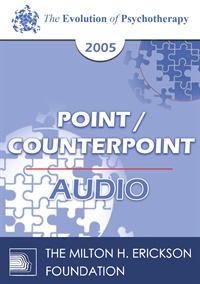
- Average Rating:
- Not yet rated
- Topic Areas:
- Point/Counterpoint Sessions | Law & Ethics | Psychotherapy
- Categories:
- Evolution of Psychotherapy | Evolution of Psychotherapy 2005
- Faculty:
- Thomas Szasz, MD | James Hillman, PhD
- Duration:
- 1 Hour 19 Minutes
- Format:
- Audio Only
- Original Program Date:
- Dec 10, 2005
- Short Description:
- Analysis of the problematic nature of the concepts of mental illness and psychological (verbal) therapy. How psychotherapists influence persons. Examination of the economic, ethical and legal aspects of psychotherapy.
- Price:
- $15.00 - Base Price
Tags: Ethics Law Psychotherapy Thomas Szasz
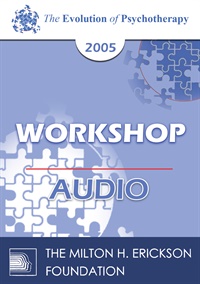
- Average Rating:
- Not yet rated
- Topic Areas:
- Topical Panels | Law & Ethics | Psychotherapy | Therapist Development
- Categories:
- Evolution of Psychotherapy | Evolution of Psychotherapy 2005
- Faculty:
- Arnold Lazarus, Ph.D. | Marsha Linehan, PhD | Thomas Szasz, MD | Jeffrey Zeig, PhD
- Duration:
- 1 Hour 3 Minutes
- Format:
- Audio Only
- Original Program Date:
- Dec 10, 2005
- Short Description:
- Topical Panel 16 from the Evolution of Psychotherapy 2005 - Ethics and Treatment Boundaries Featuring Arnold Lazarus, PhD; Marsha Linehand, PhD; Thomas Szasz, MD; and Jeffrey Zeig, PhD Moderated by Daniel Eckstein, PhD
- Price:
- $15.00 - Base Price
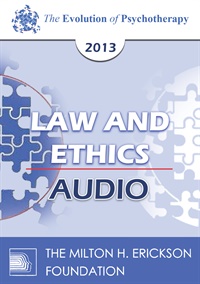
- Average Rating:
- Not yet rated
- Topic Areas:
- Law & Ethics | Psychotherapy | Therapist Development
- Categories:
- Evolution of Psychotherapy | Evolution of Psychotherapy 2013
- Faculty:
- A. Steven Frankel, PhD, JD, ABPP
- Duration:
- 3:05:20
- Format:
- Audio Only
- Original Program Date:
- Dec 10, 2013
- Short Description:
- This workshop in law, ethics and regulation focuses on three of the four most frequent causes for actions against mental health professionals, nationwide. Since the 2010-2011 law/ethics/regulation workshop focused primarily on boundary violations (including sexual contact between professional and patient/client), this 2012-2013 workshop focuses on incompetence, criminal convictions and cases involving high-conflict custody problems.
- Price:
- $15.00 - Base Price
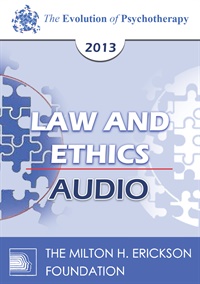
- Average Rating:
- Not yet rated
- Topic Areas:
- Law & Ethics | Therapist Development
- Categories:
- Evolution of Psychotherapy | Evolution of Psychotherapy 2013
- Faculty:
- A. Steven Frankel, PhD, JD, ABPP
- Duration:
- 1:59:21
- Format:
- Audio Only
- Original Program Date:
- Dec 10, 2013
- Short Description:
- This workshop in law, ethics and regulation focuses on three of the four most frequent causes for actions against mental health professionals, nationwide. Since the 2010-2011 law/ethics/regulation workshop focused primarily on boundary violations (including sexual contact between professional and patient/client), this 2012-2013 workshop focuses on incompetence, criminal convictions and cases involving high-conflict custody problems. The workshop emphasizes awareness and management of risk factors in the major areas of high risk practice via music videos illustrating the principles taught in the program. These include coping with negative publicity on the internet, the risks of “creative” techniques, riskier vs. safer models of intervention, coping with the need to “rescue” patients/clients, management of angry/dissatisfied patients/clients, and more.
- Price:
- $15.00 - Base Price
Tags: Ethics Law Therapist Development
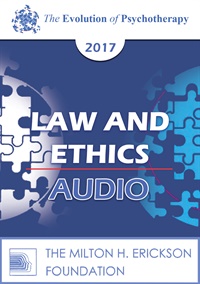
- Average Rating:
- Not yet rated
- Topic Areas:
- Law & Ethics | Therapist Development
- Bundle(s):
- EP17 Audio Streaming Build a Bundle
- Categories:
- Evolution of Psychotherapy 2017 | Evolution of Psychotherapy
- Faculty:
- A. Steven Frankel, PhD, JD, ABPP
- Duration:
- 1:46:51
- Format:
- Audio Only
- Original Program Date:
- Dec 12, 2017
- Short Description:
- “What goes around....” is focused on recent and emerging developments in law and ethics that will impact clinicians of all disciplines. Starting with changes to child abuse reporting obligations, the workshop covers changes for custody evaluators, record-keeping and maintenance, emerging issues and risks regarding telehealth practice, updates on duties to inform and warn when violent behavior may occur, modifications of laws concerning “retirement” of professionals, receiving subpoenas, testifying in court, risk management for supervisors, suicide risk management, and “selected slippery slopes.”
- Price:
- $15.00 - Base Price
Tags: Ethics Law Therapist Development
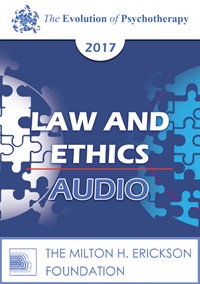
- Average Rating:
- Not yet rated
- Topic Areas:
- Law & Ethics | Therapist Development
- Bundle(s):
- EP17 Audio Streaming Build a Bundle
- Categories:
- Evolution of Psychotherapy 2017 | Evolution of Psychotherapy
- Faculty:
- A. Steven Frankel, PhD, JD, ABPP
- Duration:
- 1:21:51
- Format:
- Audio Only
- Original Program Date:
- Dec 12, 2017
- Short Description:
- “What goes around....” is focused on recent and emerging developments in law and ethics that will impact clinicians of all disciplines. Starting with changes to child abuse reporting obligations, the workshop covers changes for custody evaluators, record-keeping and maintenance, emerging issues and risks regarding telehealth practice, updates on duties to inform and warn when violent behavior may occur, modifications of laws concerning “retirement” of professionals, receiving subpoenas, testifying in court, risk management for supervisors, suicide risk management, and “selected slippery slopes.”
- Price:
- $15.00 - Base Price
Tags: Ethics Law Therapist Development
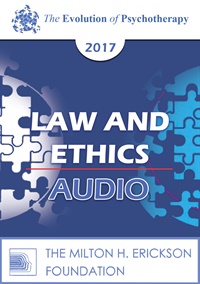
- Average Rating:
- Not yet rated
- Topic Areas:
- Law & Ethics | Therapist Development
- Bundle(s):
- EP17 Audio Streaming Build a Bundle
- Categories:
- Evolution of Psychotherapy 2017 | Evolution of Psychotherapy
- Faculty:
- A. Steven Frankel, PhD, JD, ABPP
- Duration:
- 1:53:48
- Format:
- Audio Only
- Original Program Date:
- Dec 12, 2017
- Short Description:
- “What goes around....” is focused on recent and emerging developments in law and ethics that will impact clinicians of all disciplines. Starting with changes to child abuse reporting obligations, the workshop covers changes for custody evaluators, record-keeping and maintenance, emerging issues and risks regarding telehealth practice, updates on duties to inform and warn when violent behavior may occur, modifications of laws concerning “retirement” of professionals, receiving subpoenas, testifying in court, risk management for supervisors, suicide risk management, and “selected slippery slopes.”
- Price:
- $15.00 - Base Price
Tags: Ethics Law Therapist Development
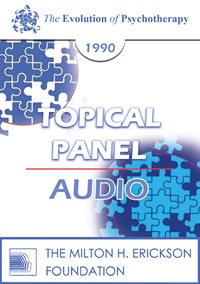
- Average Rating:
- Not yet rated
- Topic Areas:
- Topical Panels | Law & Ethics | Psychotherapy | Therapist Development
- Categories:
- Evolution of Psychotherapy | Evolution of Psychotherapy 1990
- Faculty:
- Jay Haley, MA | Rollo May, PhD | Thomas Szasz, MD | Jeffrey Zeig, PhD
- Duration:
- 1 Hour 1 Minutes
- Format:
- Audio Only
- Original Program Date:
- Dec 14, 1990
- Short Description:
- Topical Panel 09 from the Evolution of Psychotherapy 1990 - Key Ethical Considerations Featuring Jay Haley, MA; Rollo May, PhD; Thomas Szasz, MD; and Jeffrey K Zeig, PhD. Moderated by Bill O'Hanlon, MS.
- Price:
- $15.00 - Base Price
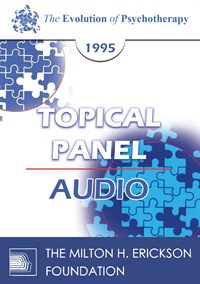
- Average Rating:
- Not yet rated
- Topic Areas:
- Topical Panels | Law & Ethics | Psychotherapy | Therapist Development
- Categories:
- Evolution of Psychotherapy | Evolution of Psychotherapy 1995
- Faculty:
- Cloe Madanes, HDL, LIC | Margaret Singer, PhD | Thomas Szasz, MD | Jeffrey Zeig, PhD
- Course Levels:
- Master Degree or Higher in Health-Related Field
- Duration:
- 59:33
- Format:
- Audio Only
- Original Program Date:
- Dec 16, 1995
- Short Description:
- Panel 16 from the Evolution of Psychotherapy 1995 - Key Ethical Considerations Featuring Cloe Madanes, Lic. Psychol.; Margaret Singer, Ph.D.; Thomas Szasz, M.D.; and Jeffrey K. Zeig, Ph.D. Moderated by Bernhard Trenkle, Dipl. Psych.
- Price:
- $15.00 - Base Price
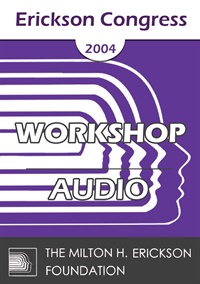
- Average Rating:
- Not yet rated
- Topic Areas:
- Workshops | Hypnosis | Law & Ethics
- Categories:
- Erickson Congress | Erickson Congress 2004
- Faculty:
- Alan Scheflin, JD
- Duration:
- 2:04:06
- Format:
- Audio Only
- Original Program Date:
- Dec 02, 2004
- Short Description:
- More than 1,000 judicial cases have discussed the relationship between hypnosis and the law. In order to protect the rights of patients, and to assist clinicians in providing competent and ethical therapy utilizing hypnosis, an understanding of the legal rules and professional guidelines for conducting clinical and hypnosis sessions will be presented.
- Price:
- $15.00 - Base Price
Please wait ...

